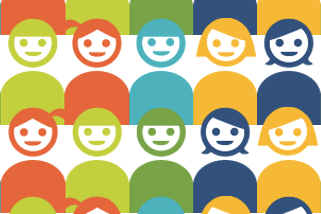Two weeks ago, France Telecom-owned carrier Orange announced Party Call, an app that Orange said it created in “partnership” with Facebook for users to make mobile calls via the social network. By linking up users’ Facebook profiles with their mobile numbers, people will be able to ring each other and in groups through Facebook, but with the calls actually routing through to their regular mobile voice services.
As we wrote at the time, it is a unique-sounding feature that not only could bring Facebook’s open graph further into the worlds of mobile and telephony, but also could give Orange a shot at making sure it doesn’t get disintermediated as more and more users turn to social networking as their primary platform for communication.
So far, so promising, but before the app has even gotten out of the door — it’s set for launch in the summer of 2013 — France Telecom is getting issued with a cease & desist from a small startup in San Francisco called Telesocial.
Telesocial believes it was the one to come up with this idea, which it presented to France Telecom over the summer of 2012 after the carrier, hungry for more social and innovative services, heard about what Telesocial was doing (incidentally, we wrote about Telesocial in October 2011, when they developed an API to add voice-chatting services to other apps).
At the time, Telesocial pitched a service it is already offering as a Facebook app, “Call Friends” — one of those presentations is embedded below — but also suggested several other names it says it had used for the feature in a series of Facebook ads and apps. Telesocial says one of those names was Party Call, which happened to be the one that France Telecom liked the most.
Telesocial says that it went so far as to enter negotiations to license the service to France Telecom, only to have those talks fall apart at a late stage after the two could not come to terms over exclusivity — Telesocial had already been speaking with another tier-one carrier, so France Telecom wanted to make sure that it could license this all to itself.
Telesocial is going after a wide range of claims here. It has already issued a cease-and-desist request over the use of the name “Party Call,” which it says it first registered on May 2011. But TechCrunch understands that it is preparing to make a broader set of allegations concerning violations of NDAs, trade secrets, patents, designs, call flows, business models and more.
The story, in its basic form, is one that might sound familiar to a lot of founders. A much bigger company hears about a good idea they have had and gets in touch. The two sign an NDA, enter conversations about partnerships and services, but then the deal does not come through. It happens. What this potentially sounds like — if true — is more of a nightmare scenario — the bigger company has gone ahead with the startup’s idea, but without involving it at all. Goliath goes to the ball. David stays home.
France Telecom, for its part, has so far answered Telesocial directly only to the claims on the name Party Call.
In a letter to Telesocial, which TechCrunch has seen, lawyers for France Telecom assert that it registered the trademark on the name in France on October 30, which will give it the ability to file priority trademarks in other countries, including the U.S. France Telecom also disputes that Telesocial had used the name prior to France Telecom making its news announcement on November 22.
We’ve reached out to France Telecom to get further comment for this story, but we were told that the Telesocial case is with the legal team, and so there would be no further comment. But before that, France Telecom told us that it had developed the app itself, and that some of the features had already been patented by Orange in France.
“Party Call was developed by Orange, with input from Facebook throughout the development process. Some of the features have been patented by Orange in France. This service has been enabled by the interconnection of Facebook’s platforms and Orange’s network platforms,” the spokesperson wrote in an email. “Orange is the only operator to have developed this functionality, but other Facebook users will be able to participate in calls whether they are Orange users or not.” A video showing a bit of how the service works, made by France Telecom, is embedded below.
No, it hasn’t been proven yet that consumers will actually want to use something like this. If users want to make a call to someone directly via Facebook, they already have one way of doing that by using the integrated Skype video option — although this isn’t as mobile friendly. And no, we don’t know what kind of charges/revenue model would be applied to Party Call; that will also be crucial to how such a feature gets adopted.
But as Telesocial gears up to present a wider case about the use of its intellectual property — it says it has patents pending on its technology at the moment — it is continuing to talk with other operators about using its service. Ironically, the added attention that France Telecom has given to this feature could end up being a successful lever for Telesocial to get its technology into the marketplace with another carrier or two.
“Although France Telecom is exactly duplicating our ideas and technology, by doing this they have endorsed the concept, even if they haven’t endorsed us,” says Bill Waytena, CEO of Telesocial. “I think we will be getting this to market, regardless of what operator we go with. Although I would have liked to work with them, another part of me is excited. There are a lot of carriers in this world and we can bring it to market before France Telecom does.”
